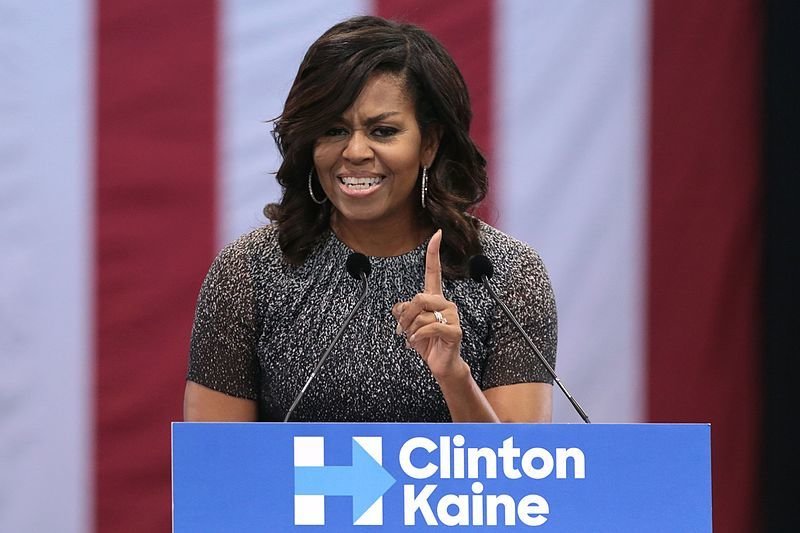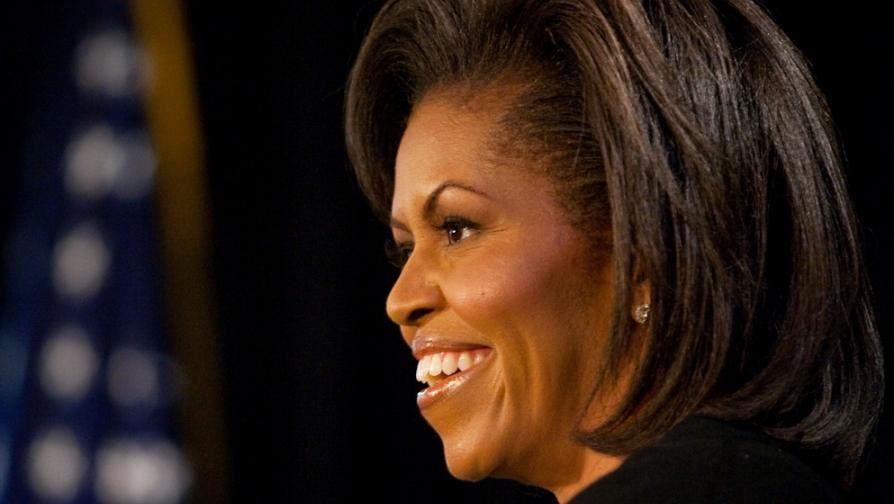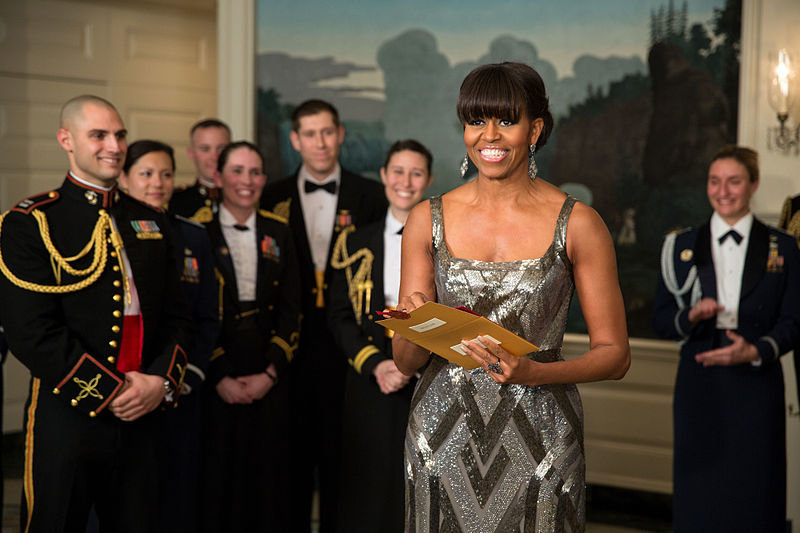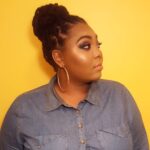Michelle Obama is no longer occupying the White House as first lady, but the mundane details of her life still evoke deep public fascination. Nowhere is that more evident than the recent response to a photo of her wearing her hair in its natural texture.
The 53-year-old didn't intend to ignite discourse about the political implications of how Black women wear their hair, but the mere fact that she can elicit such a frenzy speaks to a much larger issue.
There's an intricate link between public perception of Black women and how we choose to wear our hair.
Obama's longtime stylist Johnny Wright told Refinery29 that she's worn her hair naturally since 2009. However, she typically wore her hair straightened, though he didn't offer a reason why.

"She's always embraced her natural hair," he said. "For the looks she was going for and the stories she wanted to tell, I styled her hair straight. There wasn't any lack of embracing her curls. It's just what she wanted to do."
There is no hair code for first ladies. However, political meaning is mapped into Black women's hair, no matter how much we attempt to divorce ourselves from it.
Whether it's the association of locs with "patchouli oil and weed" or the systemic barring of natural hair from schools, jobs, and the military, there's a racist context that dictates what hairstyles Black women can wear and still be deemed "professional."
"Black women are constantly told that their hair is problematic in its natural state," Lori Tharps, a journalism professor at Temple University, told Revelist. "It's unprofessional and distracting. That's why it should be fried, dyed, and laid to the side. Meaning it should look as close to European hair as possible so that people in the office don't have to be afraid."
It's no wonder Obama opted to wear her hair's natural texture after her husband, Barack Obama, had completed his presidential terms.
Unfortunately, Black women's natural hair often has political meaning ascribed to it, so an afro isn't just read and understood as an afro. Instead, it becomes a political symbol.

"Black women intimately and painfully know that quite often in predominantly white public spaces, curly or kinky black hair can incite fascination, curiosity, or disgust," Dr. Treva Lindsey, a women's, gender, and sexuality studies professor at The Ohio State University, explained in Cosmopolitan. "…Afros still resonate as a symbol of black militancy, black nationalism, and black pride — regardless of the intention of the person with the afro."
In fact, as Lindsey later highlights, when The New Yorker depicted the Obamas as militant terrorists bumping fists in 2008, Michelle's hair was noticeably transformed into an afro. It again linked natural hair to militance, something Tharps, who authored the book "Hair Story: Untangling the Roots of Black Hair in America," said America wasn't prepared to associate with a first lady.
Tharps told Revelist that leaving the White House bestowed Obama with the agency to make choices about her hair without considering a larger national impact.

"I don't think Michelle Obama had a choice in the matter," she said. "America wasn't ready for a first lady with natural hair. It would have been a distraction and a constant source of debate. I'm sure Mrs. Obama wasn't trying to spend eight years having people talk about her hair instead of the more important issues facing the country."
It's a position numerous Black women, myself included, have been in.
In April 2011, I walked into a barbershop in Greensboro, North Carolina with three friends. Thirty minutes later, I left without hair. I'd chosen to big chop, or cut the remaining chemical relaxer out of my hair, by wearing a short, blonde, caesar cut.
Although friends and family showered me with praise and called me "brave" and "bold," I struggled with inner turmoil about how I would be perceived as I applied for post-graduation jobs.
Six years later, I've grown my caesar into an afro that evolved into the locs that I proudly wear.
However, there's always an underlying unanswered question: Am I bypassed for opportunities because of the hairstyle I've rightfully chosen to wear? It's a haunting question because there's never an outright answer.
Instead, Black women the world over are subjected to mini-stabs of microaggressions that become bleeding, untended wounds. Whether it's the seemingly innocuous attempts to touch our hair or the backhanded comments about its durability, length, and texture, Black women are consistently navigating a minefield of racially anchored assumptions.
Our natural hair is perceived as unacceptable and unprofessional.
Michelle Obama knows firsthand how sexism and racism collide in this way to harm Black women.

She spent her tenure in the White House being labeled an "angry Black woman," although she never expressed that emotion in a visible way. There were loaded comments about her appearance, her demeanor, and her motherhood, but she made a conscious choice with her hair.
Now, Michelle Obama is free. She'll never be an ordinary citizen who makes decisions without ramifications, but now, at least, her scalp can belong to her again.
As Tharps said, Obama is now free to be her "full authentic self."
"Clearly being America's first Black first lady came with a lot of pressure and respectability politics," she said. "I think wearing her hair unstraightened was a visual sign that Michelle was feeling unfettered and unbound."
It is rare to see visible and successful Black women wearing their natural hair texture, as Obama is doing. However, if a former first lady can embrace it, so too can other Black women — stereotypes be damned.




